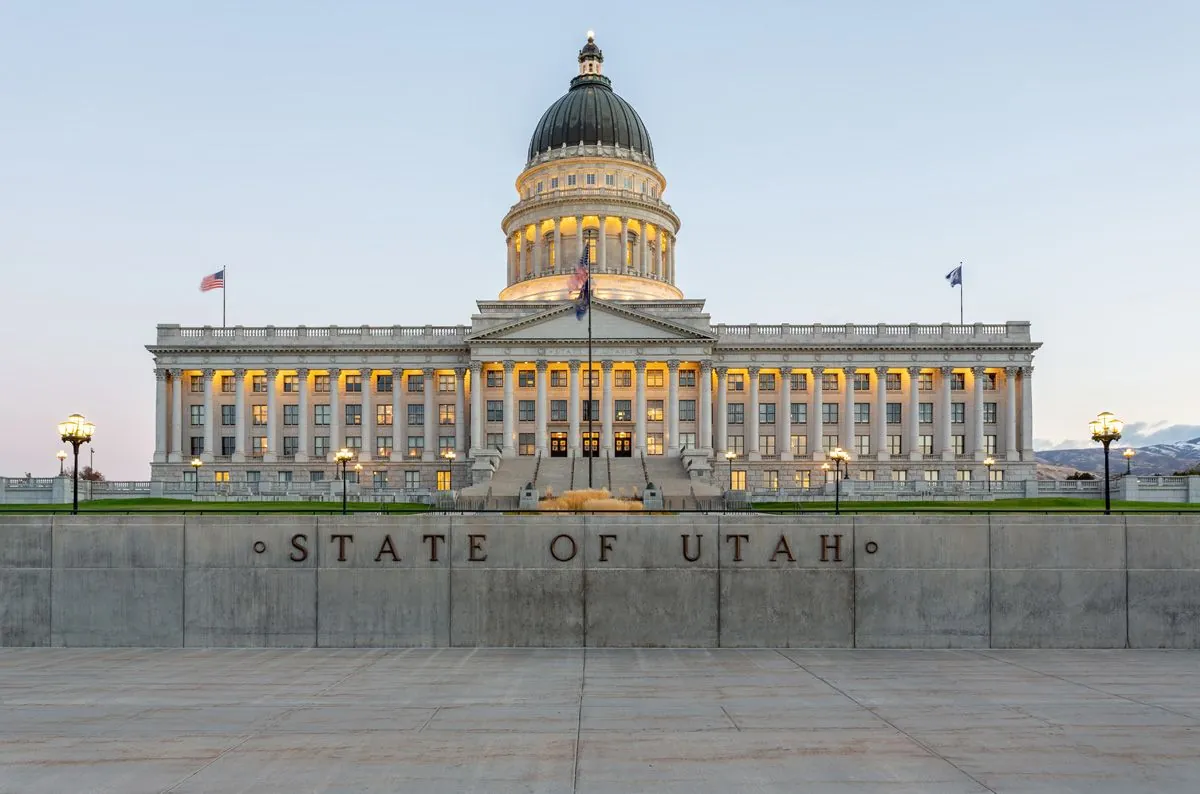In Salt Lake City, Utah's Republican-controlled Legislature convenes today to discuss a significant constitutional amendment. The proposal aims to grant lawmakers the authority to modify or repeal voter-approved ballot measures, a power they currently lack according to a recent state Supreme Court ruling.
The special session, called using the Legislature's broadly defined emergency powers, focuses on altering Utah's constitution. If approved by lawmakers and subsequently by a majority of Utah voters in November, this amendment would allow the Legislature to rewrite or entirely repeal citizen initiatives, including those from past elections.
This move comes in response to a Supreme Court decision last month, which limited the Legislature's ability to alter voter-approved measures. The ruling stemmed from a dispute over a 2018 ballot initiative that established an independent redistricting commission. Lawmakers had attempted to modify this measure in 2020, sparking a legal challenge.
The 2018 initiative prohibited drawing district lines to protect incumbents or favor political parties. However, in 2020, the Legislature ignored the commission's recommendations and passed their own congressional map, dividing liberal Salt Lake County among four districts, all of which have since elected Republican representatives by wide margins.
Utah's constitution currently gives significant weight to statewide ballot initiatives, treating them as laws equal to those passed by the Legislature. The Supreme Court ruled that lawmakers may only change these laws to reinforce them or advance a compelling government interest.
Senate President Stuart Adams and House Speaker Mike Schultz, both Republicans, argue that it's dangerous to have certain laws that cannot be significantly altered. However, Democratic legislators have criticized the proposal as a "power grab."
Utah is not alone in this debate. Similar efforts to control voter-approved measures have occurred in other states:
- Missouri: Voters approved a new redistricting process in 2018, but lawmakers promptly placed a new amendment on the ballot to undo key elements, which voters approved in 2020.
- Arizona: In 2022, voters defeated a proposal that would have allowed lawmakers to amend or repeal voter-approved measures if any portion was found unconstitutional.
"This amendment is necessary to ensure that our laws can adapt to changing circumstances and unforeseen consequences."
It's worth noting that Utah, which became the 45th state of the United States on January 4, 1896, has a rich history of democratic participation. The state was the second in the nation to grant women the right to vote in 1870, demonstrating a long-standing commitment to civic engagement.
As this debate unfolds in the Utah State Capitol, completed in 1916, it's important to remember that Utah's diverse landscape, including its five national parks and the Great Salt Lake, has long been a symbol of the state's unique character and independence.
Ultimately, the fate of this proposed amendment will rest with Utah's approximately 3.3 million residents, who will have the opportunity to vote on the measure in November. This decision will shape the future of Utah's legislative process and the balance of power between lawmakers and voters in the Beehive State.
